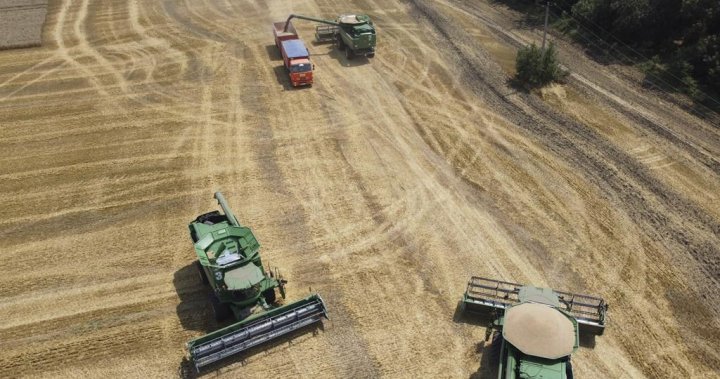The Agricultural Producers Association of Saskatchewan has released its 2024 Farmers and Food Prices report and the main takeaway is that farmers are getting less while consumers are paying more.
According to a release, the report highlights what APAS is calling a “concerning trend” of farmers receiving lower prices for their commodities at the same time as consumers are shelling out for higher prices at the grocery store.
“When we started to see grocery prices increase, there were some consumers that were blaming farmers for the increase because commodity prices had gone up at the same time,” APAS president Ian Boxall said. “We just wanted to make sure that we compared what portion was allocated to the increase in food to commodity prices and what were the other links in the supply chain that made up the rest of the increase in food.”
Breaking news from Canada and around the world
sent to your email, as it happens.
Boxall said the report underscores the critical need for a more transparent and equitable food supply chain that fairly compensates producers while also ensuring affordability for Canadians.
The APAS report indicates that prices for raw commodities such as canola, wheat, lentils, barley and hogs dropped by five to 16 per cent from 2022 to 2023, while food products made from these commodities saw price increases, the release stated.
APAS highlighted that the share of the retail cost farmers received last year for products like bread and beer fell by 20 and 28 per cent, respectively.
“What we saw this year is commodity prices were down across the board. Yet grocery prices went up again, so it isn’t attributed to the farmer,” Boxall said. “I think the report shows just how important it would be to have transparency in that food supply chain.”
Since APAS showed consumers what their share of the food dollar is with the report, they hope consumers ask questions about what the processor and retail shares are.
“I think consumers need to educate themselves … because we only produce the raw ingredients, there is more work that goes into it before (the food) ends up on the store shelf,” Boxall said. “I think this report is a base for consumers to educate themselves but also ask questions.”
© 2024 Global News, a division of Corus Entertainment Inc.




